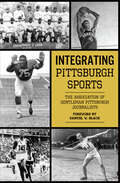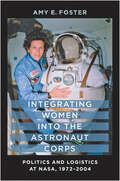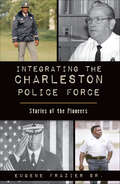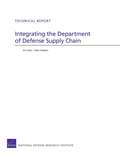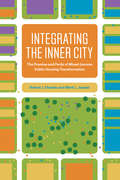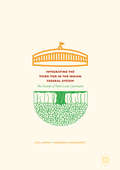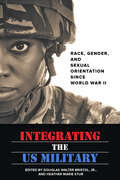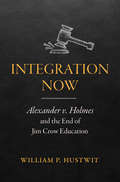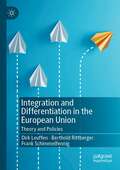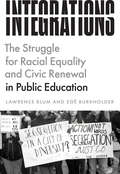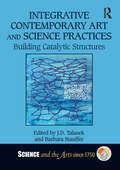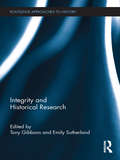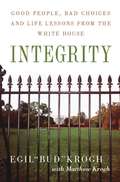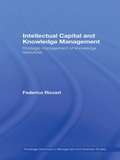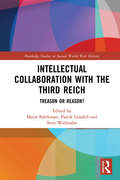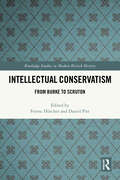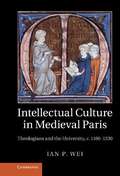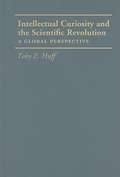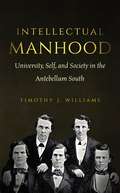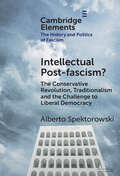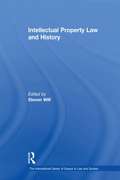- Table View
- List View
Integrating Pittsburgh Sports (Sports)
by The Association of Gentleman Pittsburgh JournalistSteel City Sports as a Catalyst for Change Though Pittsburgh athletics had many of the same barriers to equality and racial discrimination as the rest of the nation for far too long, the city has celebrated some of the most important moments in the integration of sports in the country. Pittsburgh was the only city with two Negro League teams, fielding such future Hall of Famers as Josh Gibson, Cool Papa Bell, Oscar Charleston and Satchel Paige. Local high school basketball stars Chuck Cooper, Bill Nunn, Jr., Dick Ricketts, Maurice Stokes, and Jack Twyman held integrated pick-up games at local parks such as Mellon Park in Shadyside in the 1950s. In college football, Connellsville native Jimmy Joe Robinson became the first African American player on Pitt's football team in 1945 as the school continued to integrate its squad ahead of federal desegregation.The Association of Gentleman Pittsburgh Journalists present the compelling, heartbreaking and courageous history of how Pittsburgh's integration of sport helped lead the nation.
Integrating Women into the Astronaut Corps: Politics and Logistics at NASA, 1972–2004
by Amy E. FosterWhy, Amy E. Foster asks, did it take two decades after the Soviet Union launched its first female cosmonaut for the United States to send its first female astronaut into space? In answering this question, Foster recounts the complicated history of integrating women into NASA’s astronaut corps. NASA selected its first six female astronauts in 1978. Foster examines the political, technological, and cultural challenges that the agency had to overcome to usher in this new era in spaceflight. She shows how NASA had long developed progressive hiring policies but was limited in executing them by a national agenda to beat the Soviets to the moon, budget constraints, and cultural ideas about women’s roles in America. Lively writing and compelling stories, including personal interviews with America’s first women astronauts, propel Foster’s account. Through extensive archival research, Foster also examines NASA’s directives about sexual discrimination, the technological issues in integrating women into the corps, and the popular media’s discussion of women in space. Foster puts together a truly original study of the experiences not only of early women astronauts but also of the managers and engineers who helped launch them into space.In documenting these events, Foster offers a broader understanding of the difficulties in sexually integrating any workplace, even when the organization approaches the situation with as positive an outlook and as strong a motivation as did NASA.
Integrating the Charleston Police Force: Stories of the Pioneers (American Heritage)
by Eugene Frazier Sr.The civil rights era in the United States was a turbulent time of struggle and protest, with groups making history all across the nation. African American police officers in Charleston were immersed in their own battle to integrate local law enforcement agencies. These pioneers endured hatred and resentment within the department and sometimes from those they were sworn to protect. Lieutenant Eugene Frazier, Detective George Gathers and others fought the establishment while climbing the ranks to solve some of the toughest crimes that Charleston has ever seen. Join Frazier as he recounts the true stories of those who fought for equality.
Integrating the Department of Defense Supply Chain
by Eric Peltz Marc Robbins Geoffrey McgovernThe authors provide a framework for an integrated Department of Defense (DoD) supply chain, associated policy recommendations, and a companion framework for management practices that will drive people to take actions aligned with this integrated supply chain approach. Building on the framework and policy recommendations, they identify opportunities to improve DoD supply chain efficiency and highlight several already being pursued by DoD.
Integrating the Inner City: The Promise and Perils of Mixed-Income Public Housing Transformation
by Robert J. Chaskin Mark L. JosephFor many years Chicago’s looming large-scale housing projects defined the city, and their demolition and redevelopment—via the Chicago Housing Authority’s Plan for Transformation—has been perhaps the most startling change in the city’s urban landscape in the last twenty years. The Plan, which reflects a broader policy effort to remake public housing in cities across the country, seeks to deconcentrate poverty by transforming high-poverty public housing complexes into mixed-income developments and thereby integrating once-isolated public housing residents into the social and economic fabric of the city. But is the Plan an ambitious example of urban regeneration or a not-so-veiled effort at gentrification? In the most thorough examination of mixed-income public housing redevelopment to date, Robert J. Chaskin and Mark L. Joseph draw on five years of field research, in-depth interviews, and volumes of data to demonstrate that while considerable progress has been made in transforming the complexes physically, the integrationist goals of the policy have not been met. They provide a highly textured investigation into what it takes to design, finance, build, and populate a mixed-income development, and they illuminate the many challenges and limitations of the policy as a solution to urban poverty. Timely and relevant, Chaskin and Joseph’s findings raise concerns about the increased privatization of housing for the poor while providing a wide range of recommendations for a better way forward.
Integrating the Third Tier in the Indian Federal System
by Atul Sarma Debabani ChakravartyThis book discusses the evolution of the third tier of the Indian federal system, with a focus on rural local governance (commonly known as Panchayati Raj) against the backdrop of important theoretical and empirical literature on the relevance and effectiveness of service delivery in the decentralized system. It evaluates the quintessence of the functioning of the Panchayati Raj in the past two decades of its existence. This pioneering book also discusses the treatment of the third-tier government in the inter-governmental fiscal transfer framework and the delineation of the unique institution of local self-government in the Northeastern Indian States. In the light of the loosely evolved fiscal relations between three levels of government, it has been observed that local self-governments in the bottom tier have not been truly empowered yet. The book argues in favor of integrating the third-tier government into the Indian federal system and suggests how this could be achieved.
Integrating the US Military: Race, Gender, and Sexual Orientation since World War II
by Douglas Walter Bristol, Jr., and Heather Marie SturHow have the US Armed Forces been transformed by integration?One of the great ironies of American history since World War II is that the military—typically a conservative institution—has often been at the forefront of civil rights. In the 1940s, the 1970s, and the early 2000s, military integration and promotion policies were in many ways more progressive than similar efforts in the civilian world. Today, the military is one of the best ways for people from marginalized groups to succeed based solely on job performance.Integrating the US Military traces the experiences of African Americans, Japanese Americans, women, and gay men and lesbians in the armed forces since World War II. By examining controversies from racial integration to the dismantling of "Don’t Ask, Don’t Tell" to the recent repeal of the ban on women in combat, these essays show that the military is an important institution in which social change is confirmed and, occasionally, accelerated. Remarkably, the challenges launched against the racial, gender, and sexual status quo in the postwar years have also broadly transformed overarching ideas about power, citizenship, and America’s role in the world.The first comparative study of legally marginalized groups within the armed services, Integrating the US Military is a unique look at the history of military integration in theory and in practice. The book underscores the complicated struggle that accompanied integration and sheds new light on a broad range of comparable issues that affect civilian society, including affirmative action, marriage laws, and sexual harassment.
Integration Now: Alexander v. Holmes and the End of Jim Crow Education
by William P. HustwitRecovering the history of an often-ignored landmark Supreme Court case, William P. Hustwit assesses the significant role that Alexander v. Holmes (1969) played in integrating the South's public schools. Although Brown v. Board of Education has rightly received the lion's share of historical analysis, its ambiguous language for implementation led to more than a decade of delays and resistance by local and state governments. Alexander v. Holmes required "integration now," and less than a year later, thousands of children were attending integrated schools. Hustwit traces the progression of the Alexander case to show how grassroots activists in Mississippi operated hand in glove with lawyers and judges involved in the litigation. By combining a narrative of the larger legal battle surrounding the case and the story of the local activists who pressed for change, Hustwit offers an innovative, well-researched account of a definitive legal decision that reaches from the cotton fields of Holmes County to the chambers of the Supreme Court in Washington.
Integration and Differentiation in the European Union: Theory and Policies
by Frank Schimmelfennig Dirk Leuffen Berthold RittbergerFar from displaying a uniform pattern, European integration varies significantly across policy areas and individual countries. Why do some member states choose to opt out of specific EU policies? Why are some policies deeply integrated whereas others remain intergovernmental? In this updated second edition, the authors introduce the most important theoretical approaches to European integration and apply these to the trajectories of key EU policy areas. Arguing that no single theory offers a completely convincing explanation of integration and differentiation in the EU, this thought-provoking book provides a new synthesis of integration theory and an original way of thinking about what the EU is and how it works.
Integration and Peace in East Africa: A History of the Oromo Nation
by Tsega EtefaThis book analyzes the development of indigenous religious, commercial, and political institutions among the Oromo mainly during the relatively peaceful two centuries in its history, from 1704 to 1882. The largest ethnic group in East Africa, the Oromo promoted peace, cultural assimilation, and ethnic integration.
Integrations: The Struggle for Racial Equality and Civic Renewal in Public Education (History and Philosophy of Education Series)
by Lawrence Blum Zoë BurkholderThe promise of a free, high-quality public education is supposed to guarantee every child a shot at the American dream. But our widely segregated schools mean that many children of color do not have access to educational opportunities equal to those of their white peers. In Integrations, historian Zoë Burkholder and philosopher Lawrence Blum investigate what this country’s long history of school segregation means for achieving just and equitable educational opportunities in the United States. Integrations focuses on multiple marginalized groups in American schooling: African Americans, Native Americans, Latinxs, and Asian Americans. The authors show that in order to grapple with integration in a meaningful way, we must think of integration in the plural, both in its multiple histories and in the many possible definitions of and courses of action for integration. Ultimately, the authors show, integration cannot guarantee educational equality and justice, but it is an essential component of civic education that prepares students for life in our multiracial democracy.
Integrations: The Struggle for Racial Equality and Civic Renewal in Public Education (History and Philosophy of Education Series)
by Lawrence Blum Zoë BurkholderThe promise of a free, high-quality public education is supposed to guarantee every child a shot at the American dream. But our widely segregated schools mean that many children of color do not have access to educational opportunities equal to those of their white peers. In Integrations, historian Zoë Burkholder and philosopher Lawrence Blum investigate what this country’s long history of school segregation means for achieving just and equitable educational opportunities in the United States. Integrations focuses on multiple marginalized groups in American schooling: African Americans, Native Americans, Latinxs, and Asian Americans. The authors show that in order to grapple with integration in a meaningful way, we must think of integration in the plural, both in its multiple histories and in the many possible definitions of and courses of action for integration. Ultimately, the authors show, integration cannot guarantee educational equality and justice, but it is an essential component of civic education that prepares students for life in our multiracial democracy.
Integrations: The Struggle for Racial Equality and Civic Renewal in Public Education (History and Philosophy of Education Series)
by Lawrence Blum Zoë BurkholderThe promise of a free, high-quality public education is supposed to guarantee every child a shot at the American dream. But our widely segregated schools mean that many children of color do not have access to educational opportunities equal to those of their white peers. In Integrations, historian Zoë Burkholder and philosopher Lawrence Blum investigate what this country’s long history of school segregation means for achieving just and equitable educational opportunities in the United States. Integrations focuses on multiple marginalized groups in American schooling: African Americans, Native Americans, Latinxs, and Asian Americans. The authors show that in order to grapple with integration in a meaningful way, we must think of integration in the plural, both in its multiple histories and in the many possible definitions of and courses of action for integration. Ultimately, the authors show, integration cannot guarantee educational equality and justice, but it is an essential component of civic education that prepares students for life in our multiracial democracy.
Integrative Contemporary Art and Science Practices: Building Catalytic Structures (Science and the Arts since 1750)
by Barbara Stauffer J. D. TalasekContributors investigate the motivation behind scientifically-embedded contemporary art practices as well as art-based scientific research and engagement that attempt to shape society. This edited volume reflects the rapidly developing practices comprising integrative and collaborative work across different knowledge domains (including art and science), the benefit of those processes to the individual, to knowledge production (and its complexity) and ultimately the benefits to society (why it is worth doing). The book will provide an overview of the factors in which the exhibition and performance of scientifically-engaged art inside and outside of traditional museum spaces has instigated cultural and aesthetic transformations and social interactions while presenting a variety of opportunities for educators, scientists, artists and the interested public to critically expand its engagement. The book is intended for scholars interested in collaborative and/or integrative work who study research, methodology, art history, science, and museum studies.
Integrity and Historical Research (Routledge Approaches to History)
by Tony Gibbons Emily SutherlandThere have been serious debates between historians, novelists and filmmakers as to how best present historical narratives. When writers and filmmakers talk of using historical research with integrity, what exactly do they mean? Integrity and Historical Research examines this question in detail. The first chapter discusses the concept of integrity. The chapters that follow reflect on this philosophical treatment in the light of fiction and film that deals with history in a number of ways. How should writers and filmmakers use lives? Can, and may, people who are now dead and who may have lived long ago, be defamed? The authors include academics, historians, social historians, medievalists, oral historians, literary theorists, historical novelists and script writers. They examine the theoretical influences and practical choices that involve and concern writers and filmmakers who rely on historical research. The desire to be accurate may often conflict with the need to produce a work that goes beyond the mere depiction of events in order to excite the interest of readers and to hold that interest. At the same time there is a developing emphasis on historians, to write well in clear, accessible prose, which may involve using the novelists’ techniques. How much license may be given to writers of fiction and filmmakers in their depiction of historical characters and events? This book begins to answer this question, while inviting further discussion.
Integrity: Good People, Bad Choices, and Life Lessons from the White House
by Egil Bud" Krogh Matthew KroghIn 1971, Egil "Bud" Krogh was summoned to a closed-door meeting by John Ehrlichman, his mentor and key confidant of President Richard Nixon, in a secluded office in the Western White House. Krogh thought he was walking into a meeting to discuss the drug control program launched on his most recent trip to South Vietnam. Instead, he was handed a file and the responsibility for the SIU, Special Investigations Unit, later to become notorious as "The Plumbers. " The unit was to investigate the leaks of top-secret government documents, particularly the Pentagon Papers, to the press. The president considered this task critical to national security. Nixon said he wanted the unit headed up by a "real son of a bitch. " He got the studious, zealous, and loyal-to-a-fault Bud Krogh instead. In that instant, Krogh was handed the job that would lead to one of the most famous conspiracies in presidential history and the demise of the Nixon administration. Integrity is Krogh's memoir of his experiences-of what really went on behind closed doors, of how a good man can lose his moral compass, of how exercising power without integrity can destroy a life. It also tells the moving story of how he turned his life back around. For anyone interested in the ethical challenges of leadership, or of professional life, Integrity is thought-provoking and inspiring reading.
Intellectual Capital and Knowledge Management: Strategic Management of Knowledge Resources (Routledge Advances In Management And Business Studies)
by Federica RicceriIt is widely held that the successful management of knowledge resources within industry creates value. However, how this value is created is less clear. This book explores the management of knowledge resources in organisations. Several of the frameworks which have been created around the world to manage knowledge resources are examined and the book
Intellectual Collaboration with the Third Reich: Treason or Reason? (Routledge Studies in Second World War History)
by Maria Björkman Patrik Lundell Sven WidmalmThe book investigates the rather neglected "intellectual" collaboration between National Socialist Germany and other countries, including views on knowledge and politics among "pro-German" intellectuals, using a comparative approach. These moves were shaped by the Nazi system, which viewed scientific and cultural exchange as part and parcel of their cultural propaganda and policy. Positive views of the Hitler regime among intellectuals of all sorts were indicative of a broader discontent with democracy that, among other things, represented an alternative approach to modernization which was not limited to the German heartlands. This book draws together international experts in an analysis of right-wing Europe under Hitler; a study which has gained new resonance amidst the wave of European nationalism in the twenty-first century.
Intellectual Conservatism: From Burke to Scruton (Routledge Studies in Modern British History)
by Ferenc Hörcher Daniel Pitt Kálmán TóthThis book examines the history of intellectual conservatism from its late 18th century "founding father", Edmund Burke, to its last great representative, the late Sir Roger Scruton.Focusing on British intellectual conservatism and investigating this under-researched area of political thought through multiple contributions and disciplines, the editors' aim is to provide an account of the supportive or critical intellectual work behind conservative politics in the 19th and 20th century, with a long-term view on the modern conservative movement. It is an up-to-date account of some of the major theoretical issues of conservatism that utilises case studies to provide pictures of particular conservative intellectuals, explain key concepts and reconstruct major schools and defining debates within conservatism. There is a particular focus on the role of Christianity, the British common law tradition and on the connection between culture and politics.Intellectual Conservatism: From Burke to Scruton is valuable for university students studying history, political science, PPE or the social sciences, as well as those interested in the contemporary debates in Western politics on the future of Europe and the US.
Intellectual Culture in Medieval Paris
by Ian P. WeiIn the thirteenth century, the University of Paris emerged as a complex community with a distinctive role in society. This book explores the relationship between contexts of learning and the ways of knowing developed within them, focusing on twelfth-century schools and monasteries, as well as the university. By investigating their views on money, marriage and sex, Ian Wei reveals the complexity of what theologians had to say about the world around them. He analyses the theologians' sense of responsibility to the rest of society and the means by which they tried to communicate and assert their authority. In the late thirteenth and early fourteenth centuries, however, their claims to authority were challenged by learned and intellectually sophisticated women and men who were active outside as well as inside the university and who used the vernacular – an important phenomenon in the development of the intellectual culture of medieval Europe.
Intellectual Curiosity and the Scientific Revolution
by Toby E. HuffSeventeenth-century Europe witnessed an extraordinary flowering of discoveries and innovations. This study, beginning with the Dutch-invented telescope of 1608, casts Galileo's discoveries into a global framework. Although the telescope was soon transmitted to China, Mughal India, and the Ottoman Empire, those civilizations did not respond as Europeans did to the new instrument. In Europe, there was an extraordinary burst of innovations in microscopy, human anatomy, optics, pneumatics, electrical studies, and the science of mechanics. Nearly all of those aided the emergence of Newton's revolutionary grand synthesis, which unified terrestrial and celestial physics under the law of universal gravitation. That achievement had immense implications for all aspects of modern science, technology, and economic development. The economic implications are set out in the concluding epilogue. All these unique developments suggest why the West experienced a singular scientific and economic ascendancy of at least four centuries.
Intellectual Manhood
by Timothy J. WilliamsIn this in-depth and detailed history, Timothy J. Williams reveals that antebellum southern higher education did more than train future secessionists and proslavery ideologues. It also fostered a growing world of intellectualism flexible enough to marry the era's middle-class value system to the honor-bound worldview of the southern gentry. By focusing on the students' perspective and drawing from a rich trove of their letters, diaries, essays, speeches, and memoirs, Williams narrates the under examined story of education and manhood at the University of North Carolina, the nation's first public university.Every aspect of student life is considered, from the formal classroom and the vibrant curriculum of private literary societies to students' personal relationships with each other, their families, young women, and college slaves. In each of these areas, Williams sheds new light on the cultural and intellectual history of young southern men, and in the process dispels commonly held misunderstandings of southern history. Williams's fresh perspective reveals that students of this era produced a distinctly southern form of intellectual masculinity and maturity that laid the foundation for the formulation of the post-Civil War South.
Intellectual Networks in Timurid Iran: Sharaf al-Dīn ʿAlī Yazdī and the Islamicate Republic of Letters (Cambridge Studies in Islamic Civilization)
by İlker Evrim BinbaşBy focusing on the works and intellectual network of the Timurid historian Sharaf al Dīn ʿAlī Yazdī (d. 1454), this book presents a holistic view of intellectual life in fifteenth-century Iran. İlker Evrim Binbaş argues that the intellectuals in this period developed informal networks which transcended political and linguistic boundaries, and spanned an area from the western fringes of the Ottoman state to bustling late medieval metropolises such as Cairo, Shiraz, and Samarkand. Among many others, the network included an Ottoman revolutionary, a Mamluk prophet, a Timurid occultist, as well as physicians, astronomers, devotees of the secret sciences, and those political figures who believed that the network was a force to be taken seriously. Also discussing the formation of an early modern Islamicate republic of letters, this book offers fresh insights into the study of intellectual history beyond the limitations imposed by nationalist methodologies, established genres, and recognized literary traditions.
Intellectual Post-fascism?: The Conservative Revolution, Traditionalism and the Challenge to Liberal Democracy (Elements in the History and Politics of Fascism)
by Alberto SpektorowskiIs the world facing creeping fascism? And if so, how is it configured in contemporary circumstances? A wide-ranging debate has developed in recent years among scholars increasingly worried by the weakness of liberal democracy, and the growing electoral power of national populist movements in Europe. In this account, the rise of the current wave of populism was preceded, and is now accompanied by an important theoretical elaboration, initiated in the 1970's in France by the intellectuals of the Nouvelle Droite and continued by Russian, American and Latin-American intellectuals and political strategists. The theoretical goals of this meta-political elaboration is a reformulation of the values of cultural diversity, identity politics, and post-colonialism, a process which in this Element the author defines as the attempt to decolonize the 'postcolonial Western mind'.
Intellectual Property Law and History (The\international Library Of Essays In Law And Society Ser.)
by Steven WilfIntellectual property has become a dominant feature of our knowledge based economy in recent years, but how has property rights in intangible items developed? This book brings together for the first time exemplary scholarship with diverse approaches to the history of United States intellectual property protection, including trade secrets, trademark, copyright, and patent law. These articles, written by leading experts in the field and often challenging conventional narratives, underscore the importance of historical perspectives for understanding how an extensive, evolving framework for the regulation of knowledge emerged in the modern period. By tracing intellectual property from an historical perspective - not merely providing justifications in philosophy or economics in the abstract - this book draws upon the past to address contemporary debates over such varied topics as: access to knowledge; policing copyright infringement; whether employees should own the products of their minds; the role of national borders in an age of digital information; and the very future of intellectual property as stakeholders and consumers contest the extent of its legal protection.
